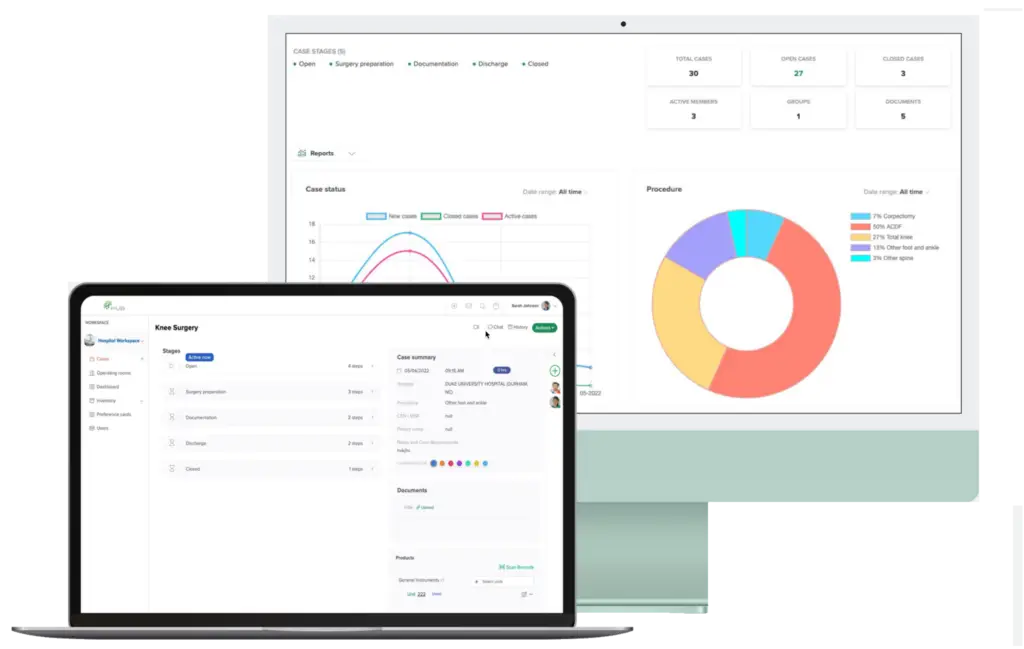As a surgery coordinator, your job is to ensure that all surgeries run smoothly and efficiently. With so many moving parts, it can be easy to overlook important details. That’s why having a comprehensive surgery scheduler checklist is crucial. Here are the top 10 essential items that should be on your surgery scheduler checklist.

1. Patient Information
The first and most important item on your surgery scheduler checklist should be patient information. This includes the patient’s name, contact information, insurance details, and any relevant medical history. It’s important to have this information readily available for easy reference during the scheduling process.
2. Procedure Details
Next, you’ll need to have all the details of the procedure on your checklist. This includes the type of surgery, the date and time, the surgeon’s name, and any special instructions or requirements for the procedure. Having this information on hand will help you schedule the surgery accurately and efficiently.
3. Pre-Operative Instructions
Before any surgery, patients are given specific instructions to follow in the days leading up to the procedure. These may include dietary restrictions, medication changes, or pre-operative tests. It’s important to have these instructions on your checklist to ensure that patients are properly prepared for their surgery.
4. Insurance Authorization
Insurance authorization is a crucial step in the surgery scheduling process. Make sure to have a section on your checklist to track the status of insurance authorization for each patient. This will help you avoid any delays or issues on the day of the surgery.
5. Pre-Admission Testing
Depending on the type of surgery, patients may need to undergo pre-admission testing to ensure they are healthy enough for the procedure. This may include blood work, EKGs, or other diagnostic tests. Having a section on your checklist to track these tests will help you stay organized and ensure that all necessary tests are completed before the surgery.
6. Surgical Equipment and Supplies
Another important item on your surgery scheduler checklist is the availability of surgical equipment and supplies. Make sure to have a list of all necessary equipment and supplies for each procedure and check them off as they are prepared. This will help avoid any last-minute scrambling on the day of the surgery.
7. Post-Operative Care Instructions
After the surgery is complete, patients will need specific instructions for their post-operative care. This may include medication schedules, wound care, or follow-up appointments. Having these instructions on your checklist will ensure that patients receive the necessary information before leaving the hospital.
8. Recovery Room Availability
It’s important to have a section on your checklist to track the availability of the recovery room. This will help you schedule surgeries accordingly and avoid any conflicts or delays.
9. Discharge Planning
Discharge planning is an important part of the surgery scheduling process. Make sure to have a section on your checklist to track any necessary arrangements for the patient’s discharge, such as transportation or home care services.
10. Follow-Up Appointments
Finally, make sure to include a section on your checklist for scheduling follow-up appointments. This will help ensure that patients receive the necessary post-operative care and follow-up appointments are not forgotten.
By including these 10 essential items on your surgery scheduler checklist, you can ensure that all surgeries run smoothly and efficiently. Do you have any other items that you would add to this list? Let us know in the comments.

How HUB Healthcare Can Help
HUB Healthcare provides a comprehensive solution designed to enhance communication in healthcare, streamline care coordination, and improve overall workflow efficiency. Our platform includes features such as medical case management software, healthcare document management, and healthcare analytics to ensure that all aspects of patient care are optimized. By leveraging HUB Healthcare’s robust tools, organizations can reduce workflow bottlenecks, automate repetitive tasks, and facilitate better collaboration among healthcare providers. This not only improves work quality but also enhances patient outcomes, making HUB Healthcare an essential partner in achieving healthcare excellence. Visit our Help Center to learn more about optimizing your healthcare workflows.



